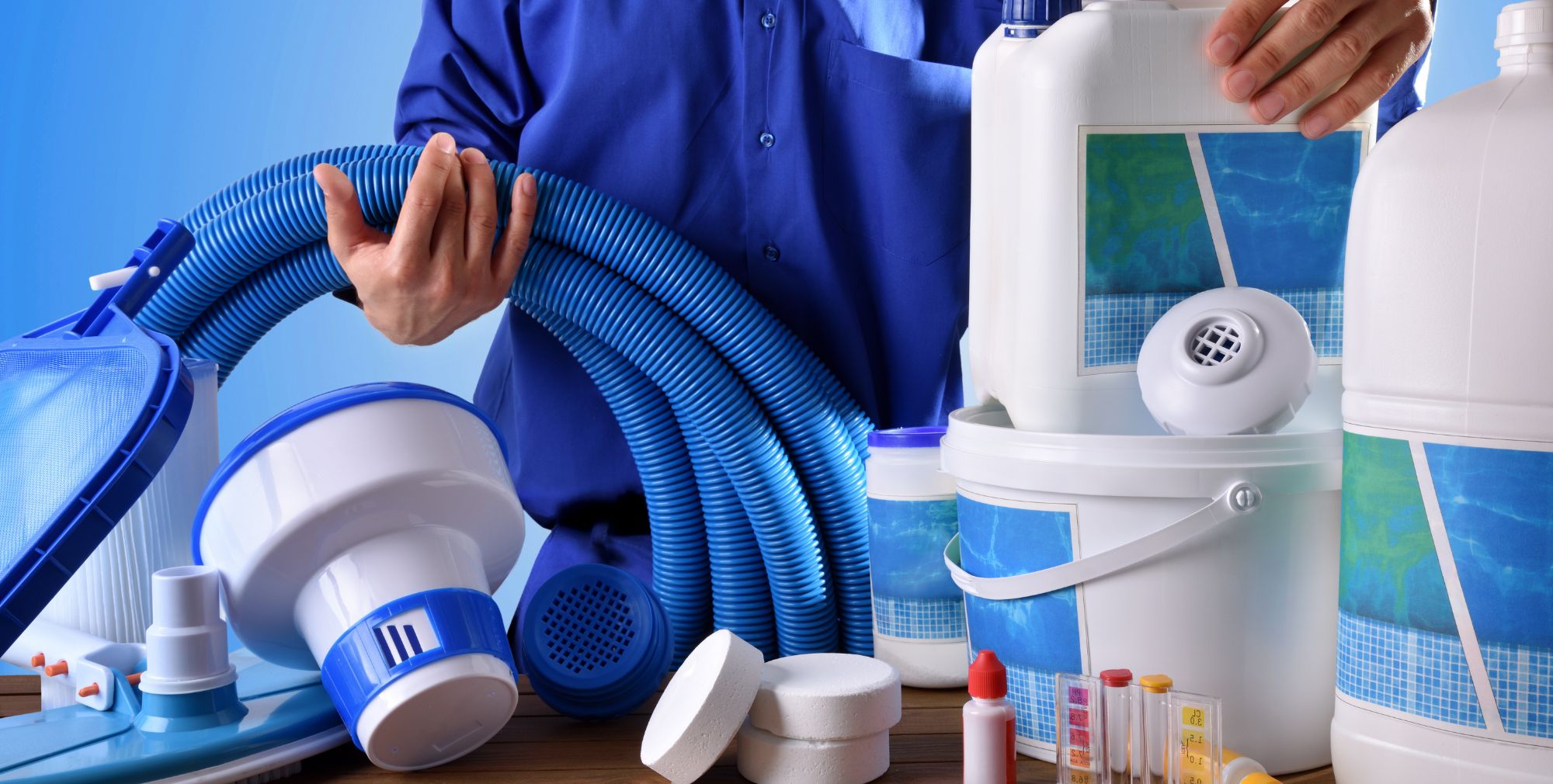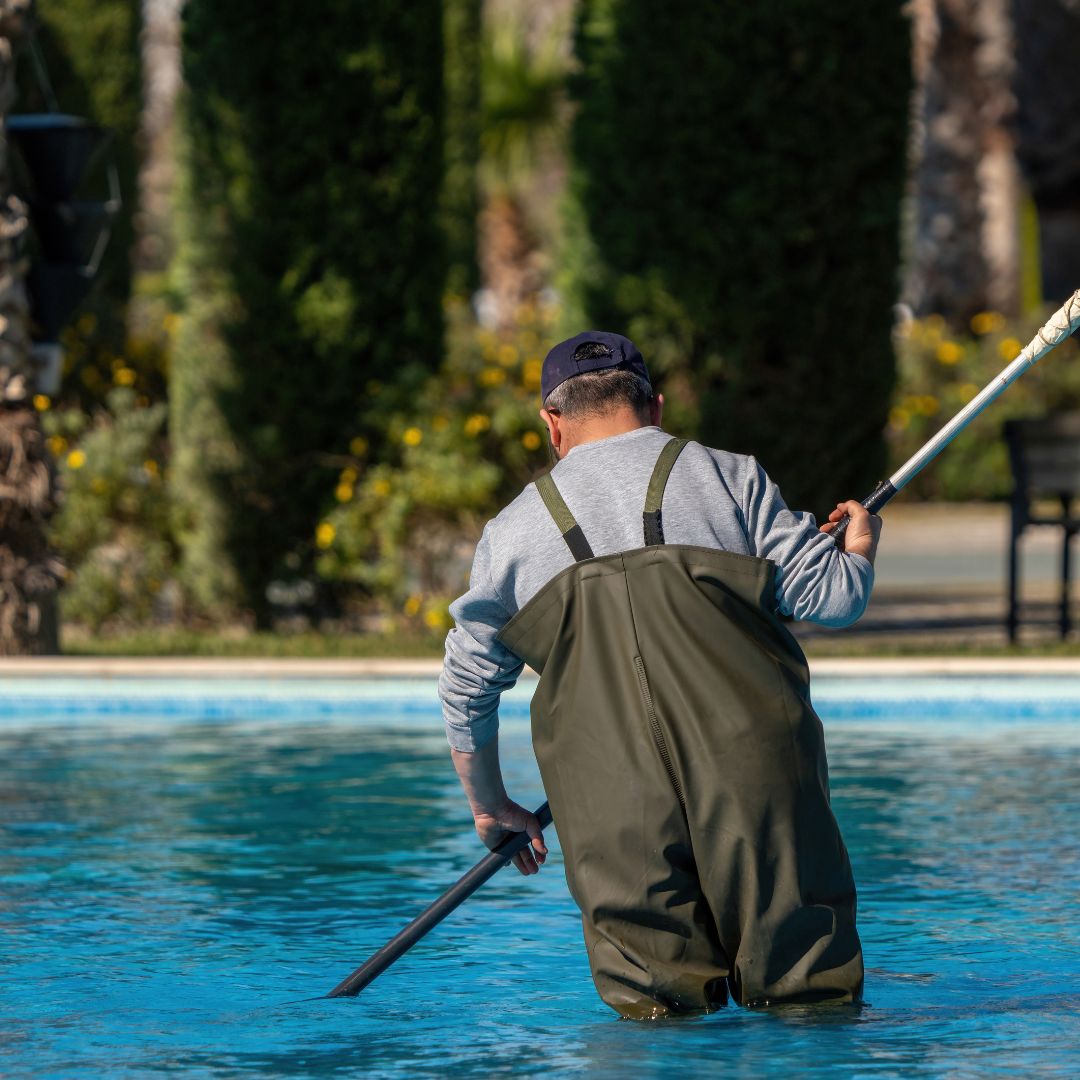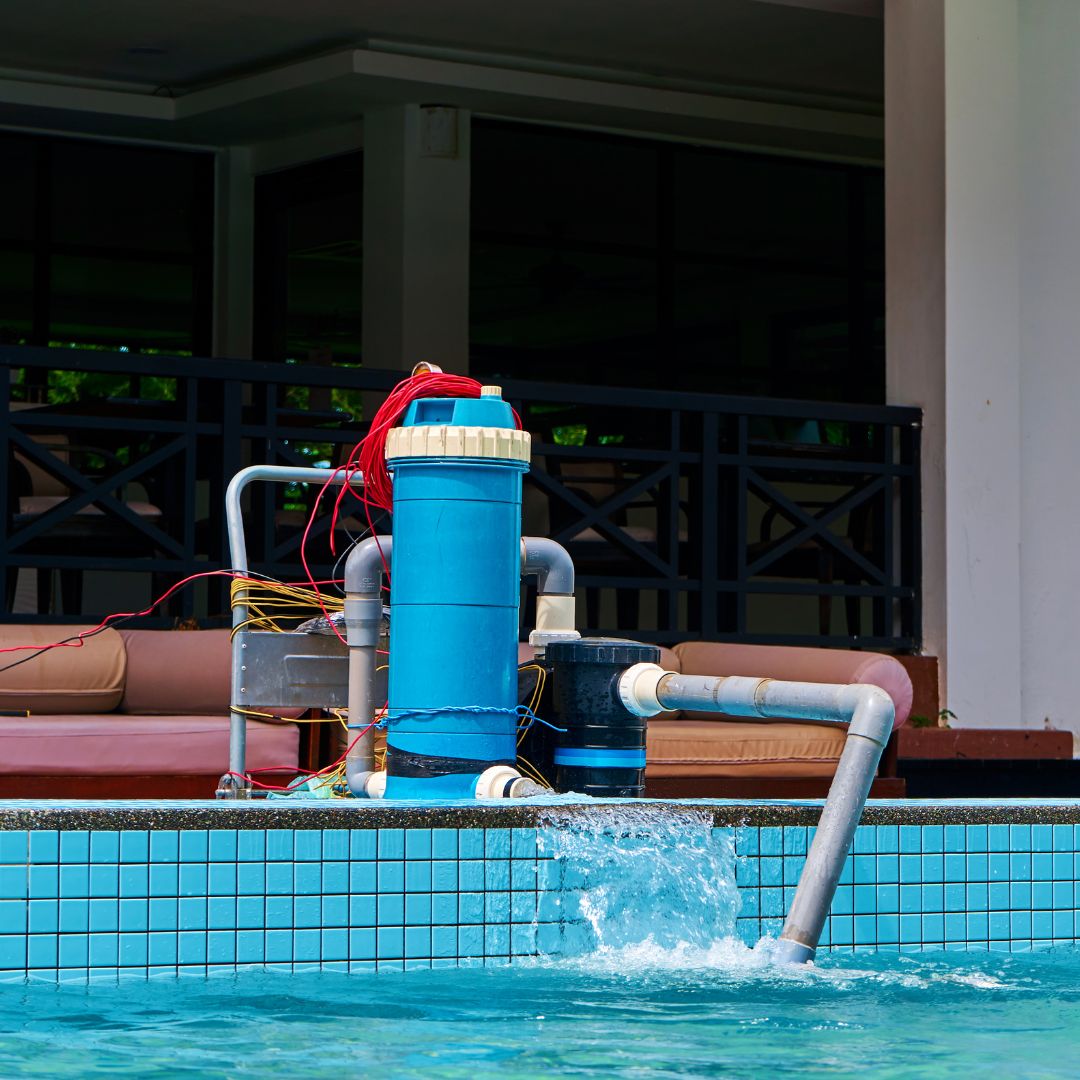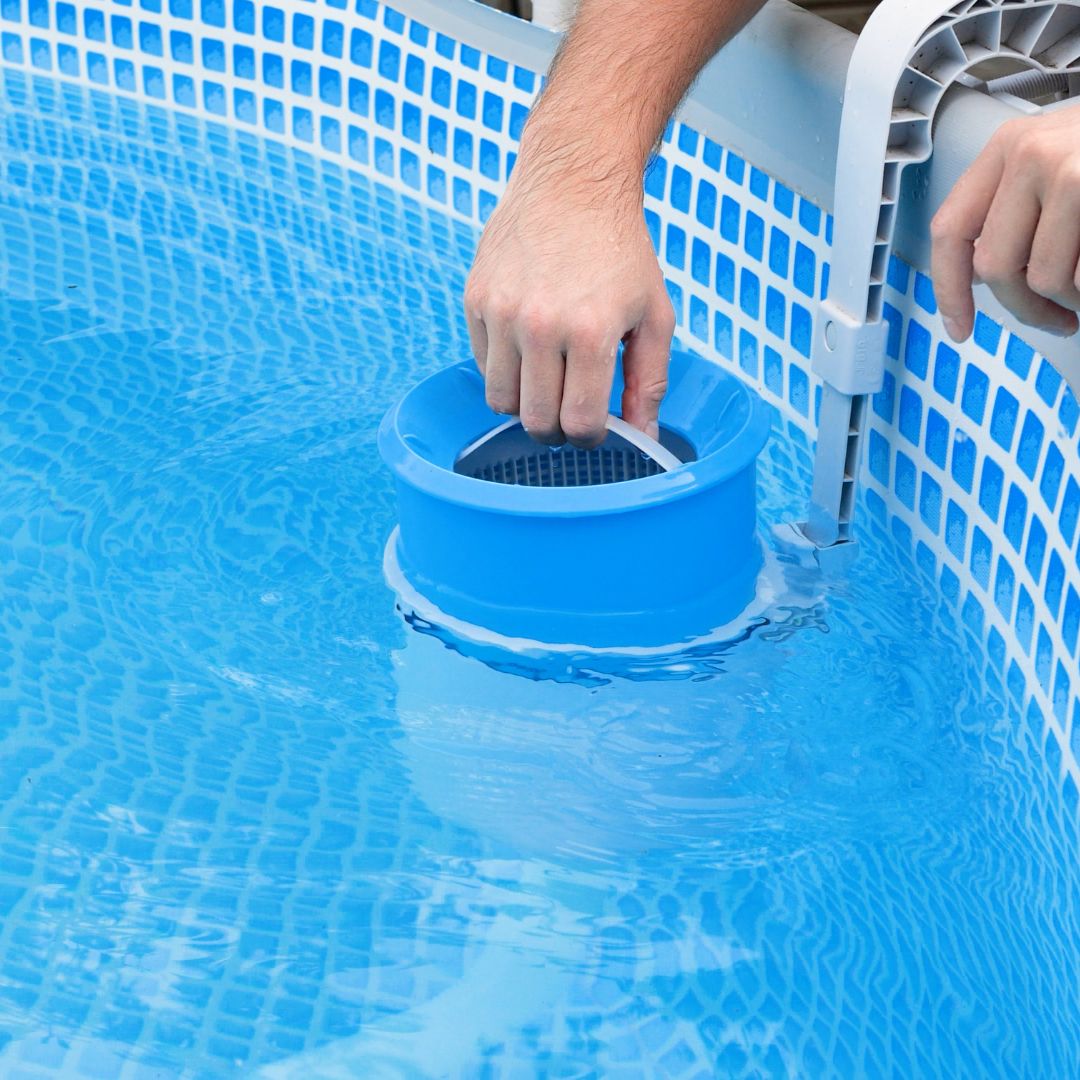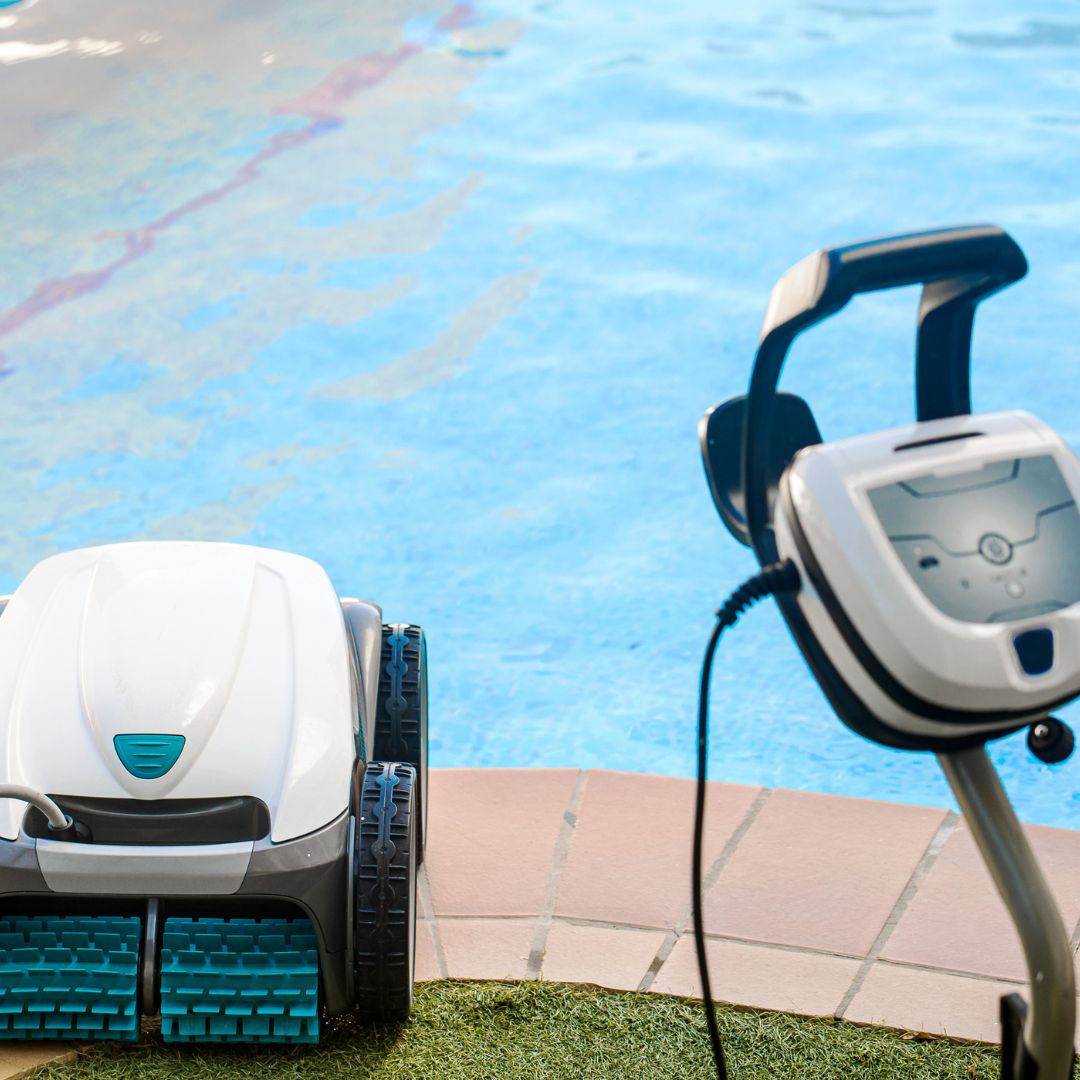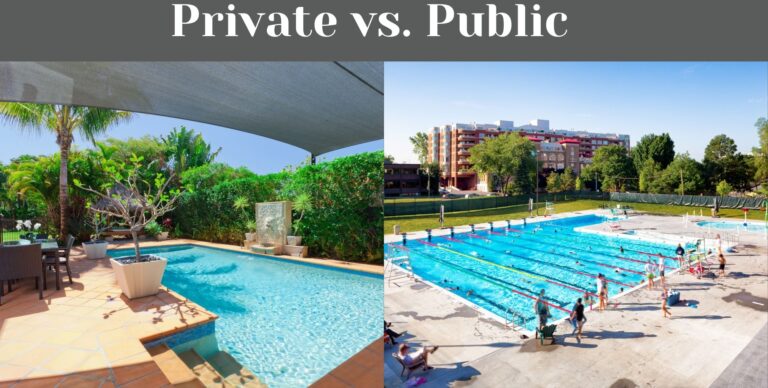Swimming Pool Maintenance in Kenya: Essential Tips to Keep Your Pool Clean
Struggling to keep your pool clean all year round? You’re not alone — over 60% of Kenyan pool owners face water clarity and maintenance issues due to shifting weather. From heavy rains to extreme heat, Kenya’s climate makes pool care tough. The right swimming pool maintenance in Kenya ensures clean, safe, and long-lasting pools. This quick guide shares essential tips on cleaning, chemical balance, and equipment upkeep to keep your pool swim-ready—always.
8 Best Swimming Pool Maintenance Practices in Kenya
Maintaining your swimming pool in Kenya requires consistent attention to ensure the water stays clean, the equipment runs efficiently, and safety remains a top priority. Kenya’s varied climate—from long dry spells to intense rainy seasons—can accelerate pool wear and lead to contamination if maintenance is neglected. Whether you own a private pool or manage a commercial facility, following the best swimming pool maintenance practices in Kenya is essential for performance, safety, and long-term value. Here are eight important reasons why regular maintenance matters:
1. Ensures Clean and Safe Water
A clean pool isn’t just visually appealing—it directly impacts swimmer health. Regular cleaning helps remove leaves, dust, insects, and other debris that are common in many regions of Kenya. Maintaining proper chemical levels eliminates bacteria, viruses, and parasites that could cause skin irritation, red eyes, or respiratory issues.
Swimming pool maintenance in Kenya should focus on both health and hygiene, especially for hospitality properties or homes with children. Proactive care ensures your pool remains a safe place to swim, relax, and entertain.
Key actions to keep water clean and safe include:
-
Skimming and vacuuming multiple times per week
-
Maintaining chlorine levels between 1.0–3.0 ppm
-
Brushing walls and floors to prevent buildup
-
Shocking the pool monthly or after heavy use
2. Extends the Life of Pool Equipment
Your pool’s pump, filter, chlorinator, and heater are its heart and lungs. Without consistent swimming pool maintenance in Kenya, these systems can clog, corrode, or burn out—especially in regions with hard water or frequent power fluctuations.
Proper care ensures equipment runs smoothly, consumes less power, and avoids expensive repairs or replacements. Tasks that extend equipment life include:
-
Regularly backwashing filters
-
Cleaning skimmer and pump baskets
-
Lubricating O-rings and inspecting seals
-
Checking for leaks, strange noises, or pressure issues
Scheduling quarterly professional servicing helps prevent downtime and extend the lifespan of your system.
3. Prevents Algae and Bacteria Growth
Kenya’s warm climate is ideal for algae and bacteria growth if pool water isn’t properly treated. Left unchecked, algae can stain surfaces and cloud water, while bacteria like E. coli pose serious health risks.
Swimming pool maintenance in Kenya must include consistent water treatment and circulation to prevent the spread of harmful organisms. Steps to prevent algae and bacteria:
-
Maintain proper chlorine and pH levels
-
Use algaecides routinely
-
Brush walls, steps, and hidden corners weekly
-
Run the filtration system 8–12 hours daily
A well-circulated and sanitized pool keeps algae and pathogens at bay and ensures the water stays clear and inviting.
4. Promotes Healthy Water Balance
Imbalanced pool water can cause a range of issues—from scaling and corrosion to cloudy water and irritated skin. In Kenya, water quality varies widely depending on your source (borehole, municipal, or rainwater), so testing is key.
Swimming pool maintenance in Kenya must include water balancing to protect your pool’s surfaces, plumbing, and comfort levels. Essential water parameters to monitor:
-
pH: 7.2–7.6
-
Alkalinity: 80–120 ppm
-
Calcium Hardness: 200–400 ppm
-
Stabilizer (Cyanuric Acid): 30–50 ppm
Maintaining these balances minimizes chemical usage, reduces long-term damage, and improves the swimming experience.
5. Improves Pool Aesthetics
Nobody wants to swim in a murky or stained pool. In cities like Nairobi or coastal regions like Mombasa, dust, leaves, and rain can quickly ruin your pool’s appearance. Clean water and well-maintained tiles improve visual appeal and boost your property’s image.
For hotels, lodges, and rentals, aesthetic value directly influences guest experience and online reviews. Consistent swimming pool maintenance in Kenya keeps your pool attractive and ready to impress. Tips to enhance pool appearance:
-
Clean tile lines and grout weekly
-
Use clarifiers for sparkling water
-
Trim surrounding vegetation regularly
-
Pressure-wash decks and furniture
Your pool becomes a beautiful highlight of your space when it’s properly maintained.
6. Enhances Pool Safety
Ignoring small issues like loose tiles or broken lights can lead to serious accidents. Wet, slippery surfaces and faulty railings put everyone—especially kids and pets—at risk. Safety must be a core part of your swimming pool maintenance plan in Kenya.
Routine inspections prevent injuries and show that your property is responsibly managed. Important safety measures include:
-
Securing ladders and handrails
-
Checking decks and walkways for cracks
-
Testing underwater lights and covers
-
Ensuring life-saving equipment is functional
Regular upkeep promotes a safe, welcoming pool environment for all users.
7. Saves Money in the Long Run
Neglecting maintenance may seem like a way to cut costs—but it usually results in bigger bills down the road. Dirty filters, cracked tiles, or green water often require emergency fixes or full system replacements.
Smart property owners and managers know that consistent swimming pool maintenance in Kenya helps reduce overall operating costs. Here’s how it saves you money:
-
Prevents premature equipment failure
-
Reduces water and energy use
-
Optimizes chemical consumption
-
Avoids expensive overhauls or resurfacing
Establishing a routine maintenance plan is more affordable and far more sustainable than fixing avoidable damage.
8. Keeps the Pool Ready for Use at Any Time
Whether you’re planning a weekend pool party, hosting guests, or running a guesthouse, having your pool always ready is a major advantage. No one wants to delay swimming because of cloudy water or broken systems.
Swimming pool maintenance in Kenya ensures your pool is consistently operational, clean, and ready—regardless of the season. How to keep your pool ready 24/7:
-
Follow a weekly cleaning and testing schedule
-
Store chemicals and tools on-site
-
Clean and secure the pool cover
-
Schedule monthly professional checkups
A pool that’s always swim-ready enhances your lifestyle and protects your reputation if you’re in the hospitality industry.
Pool Cleaning Tips for Best Swimming Pool Maintenance
Keeping your pool clean is a non-negotiable part of successful swimming pool maintenance in Kenya: it ensures sparkling water, protects your equipment, and keeps your swimmers safe. Whether you’re in Nairobi, Mombasa, Kisumu, or anywhere in between, Kenya’s unique climates—ranging from dusty urban centers to leafy coastal areas—demand a cleaning routine tailored to local conditions.
Below are essential cleaning techniques you can implement to support a consistently healthy, visually appealing, and long-lasting swimming pool:
1. Skimming and Brushing: Key techniques for pool cleaning
Skimming and brushing are your first line of defense against common pool issues: algae buildup, surface stains, and clogged filtration systems. These simple steps are foundational to proper swimming pool maintenance in Kenya, especially in areas with falling debris, insects, or high dust levels.
Skimming: Use a leaf skimmer daily to remove floating debris such as leaves, bugs, and dust before it sinks and impacts water chemistry.
Brushing: Scrub the pool’s interior surfaces at least once per week to prevent algae from attaching to the walls and steps.
Best practices:
-
Use a soft brush for vinyl or fiberglass pools
-
Use a stainless steel brush for plaster or concrete pools
-
Focus on steps, corners, ladders, and shaded areas prone to algae
Consistent skimming and brushing not only improve aesthetics but also reduce chemical use and support clearer water circulation.
2. Vacuuming: An essential step for the best swimming pool maintenance
Vacuuming is necessary for removing the fine dirt and particles that brushing and skimming may miss: it helps maintain balanced water chemistry, prevents algae outbreaks, and supports better filtration.
In the context of swimming pool maintenance in Kenya, where airborne dust and garden debris are common, vacuuming at least once a week is highly recommended.
Vacuum options to consider:
-
Manual vacuum: Budget-friendly and effective, but labor-intensive
-
Suction-side vacuum: Connects to the skimmer, ideal for smaller pools
-
Pressure-side vacuum: Powered by water pressure, good for larger pools
-
Robotic vacuum: Energy-efficient and hands-free, great for busy pool owners
Increase vacuuming frequency after storms, during the dry season, or when your pool gets heavy use. Choosing the right vacuum type can significantly reduce time spent on upkeep while improving pool hygiene.
3. Cleaning the Pool Filter: Essential for maintaining water quality
Your filter plays a critical role in swimming pool maintenance in Kenya: it removes oils, debris, and microscopic particles that can cloud the water and affect swimmer health. When the filter gets clogged, water flow is restricted, and your pool chemicals become less effective.
Understanding your filter type and maintaining it properly ensures clean, healthy water year-round.
Common pool filter types:
-
Sand filter: Backwash every 1–2 weeks or when pressure increases
-
Cartridge filter: Rinse monthly; deep-clean every 2–3 months
-
Diatomaceous Earth (DE) filter: Backwash and recharge with DE powder as needed
Signs your filter needs cleaning:
-
Persistent cloudy water
-
Low water pressure or reduced circulation
-
High pressure gauge readings
Routine filter maintenance not only extends the life of your system but also ensures your pool remains inviting and crystal clear—an essential aspect of reliable swimming pool maintenance in Kenya.
3 Key Steps for Ensuring the Best Swimming Pool Water Balance
Achieving the best swimming pool water balance is a foundational part of swimming pool maintenance in Kenya: it ensures safe, clear water for swimmers while protecting pool surfaces and systems from costly damage. Whether you own a private residential pool or manage a commercial facility, mastering water balance is critical for consistent performance and longevity.
Below are the core components that contribute to effective swimming pool water balance as part of a successful swimming pool maintenance routine in Kenya:
1. Ideal pH Levels for Pool Water: A key to effective swimming pool maintenance in Kenya
Maintaining the ideal pH range of 7.2 to 7.8 is essential to every aspect of swimming pool maintenance in Kenya. When pH levels are too low, the water becomes corrosive—irritating skin and eyes, and damaging your pool’s surfaces and mechanical systems. If pH is too high, water becomes cloudy, scale begins to form, and chlorine effectiveness drops drastically.
Frequent testing and timely pH adjustments are necessary, especially during seasonal changes or after heavy rainfall, which are common across different Kenyan climates.
2. Maintaining Chlorine Levels: Essential for swimming pool maintenance in Kenya
Chlorine is one of the most important sanitizing agents in swimming pool maintenance in Kenya: it helps keep the water free from bacteria, viruses, and algae. Chlorine levels should consistently stay between 1.0 and 3.0 ppm to ensure safety without causing irritation or equipment corrosion.
Without proper chlorine levels, your pool water can quickly turn murky or become a health hazard. Over-chlorination, however, can also lead to damage. Regularly monitoring chlorine helps you strike the right balance for a safe and welcoming swim environment.
3. Managing Alkalinity and Hardness: Protecting your pool in swimming pool maintenance in Kenya
Balanced alkalinity (80–120 ppm) and calcium hardness (200–400 ppm) are crucial for stabilizing pH and preserving your pool’s internal surfaces. In swimming pool maintenance in Kenya, these two elements are often impacted by local water sources—whether municipal, borehole, or rain-fed.
Low alkalinity causes rapid pH shifts, while high alkalinity results in scale buildup. Meanwhile, incorrect calcium levels can either corrode metal components or leave scaling on tiles and fixtures. Regular water testing and adjustment of these levels is key to long-term pool health.
6 Best Swimming Pool Equipment Maintenance Tips
Proper care of your pool equipment is central to swimming pool maintenance in Kenya: not only does it keep your system running efficiently, but it also extends the life of your investment and helps you avoid unexpected repair costs. From your pump and filter to heaters and chlorinators, regular inspections and servicing ensure everything operates smoothly—no matter the season or water condition. Below are six important equipment care tips to support the best swimming pool maintenance in Kenya:
1. Pool Pump and Filter Maintenance
The pool pump and filter form the backbone of swimming pool maintenance in Kenya. They work together to circulate and clean your water. Check for signs of wear, leaks, and reduced performance. Clean or replace filters as necessary to maintain clarity and reduce strain on the system.
Consistent care helps prevent energy waste and prolongs the life of your equipment—an important investment-saving strategy for any pool owner.
2. Checking and Cleaning Pool Heaters and Chlorinators
To keep your pool comfortable and clean, your heater and chlorinator must be in top condition. In the context of swimming pool maintenance in Kenya, these components are often exposed to water hardness and fluctuating weather, which can accelerate wear.
Inspect regularly for rust, buildup, and performance drops. Scheduling routine servicing reduces the risk of breakdowns and ensures uninterrupted enjoyment.
3. Inspecting Pool Plumbing and Pipes
Plumbing problems can disrupt your entire pool system. As part of routine swimming pool maintenance in Kenya, inspecting your pool’s pipes, joints, and fittings helps you identify leaks, blockages, or pressure loss early.
Even minor leaks can cause major problems over time. Regular plumbing checks preserve your water flow and prevent costly future repairs.
4. Lubricating O-Rings and Seals
O-rings and rubber seals in your pool equipment should not be overlooked. These small components play a major role in keeping connections watertight. In Kenya’s varying climates, rubber can dry out, crack, or degrade over time.
Applying silicone-based lubricant during regular swimming pool maintenance in Kenya helps extend their lifespan and keep your system sealed and efficient.
5. Cleaning and Replacing Skimmer Baskets
Skimmer baskets help trap leaves, bugs, and debris before they clog your filtration system. Regular cleaning is a basic yet vital step in swimming pool maintenance in Kenya. If the basket becomes damaged or cracked, replace it promptly to maintain optimal flow and filtration.
Neglecting this step can lead to bigger filtration issues and increase the workload on your pump and filter.
6. Monitoring Water Pressure Levels
Abnormal water pressure is a red flag for underlying issues like clogged filters, blocked pipes, or faulty pumps. During routine swimming pool maintenance in Kenya, check your system’s pressure gauge. A significant drop or spike indicates a need for cleaning or service.
Preventing and Treating Pool Algae for Best Maintenance
Algae growth can quickly turn a well-maintained pool into a green, murky mess. Effective algae prevention and treatment are vital components of swimming pool maintenance in Kenya. By following proven pool care practices such as ensuring proper water circulation, maintaining balanced water chemistry, and using appropriate chemicals, you can avoid algae buildup. In cases where algae do develop, prompt treatment is essential to restore water clarity and keep your pool safe and inviting.
a) Preventing Algae Growth for Clean Pool Water
Preventing algae is a key focus in swimming pool maintenance in Kenya, especially given the warm and humid climate that encourages algae growth.
-
Maintain Proper Circulation: Run your pool pump for at least 8–12 hours daily to keep water moving. Proper circulation prevents stagnant areas where algae thrive, which is crucial for effective swimming pool maintenance in Kenya.
-
Regular Brushing and Vacuuming: Brush pool walls and vacuum the floor weekly to physically remove algae spores before they multiply. This step is important in the swimming pool maintenance in Kenya routine.
-
Monitor and Balance Water Chemistry: Keep pH, chlorine, and alkalinity levels within recommended ranges. Unbalanced water chemistry is a leading cause of algae growth, so regular testing and adjustment form the backbone of swimming pool maintenance in Kenya.
-
Use Algaecides as a Preventive Measure: Regular addition of algaecide can help prevent algae outbreaks, especially during hot seasons. Incorporating algaecides into your swimming pool maintenance in Kenya plan enhances algae control.
-
Keep the Pool Area Clean: Remove debris, leaves, and dirt regularly through skimming and cleaning. Organic matter feeds algae, so cleanliness is an essential pillar of swimming pool maintenance in Kenya.
-
Shower Before Swimming: Oils, lotions, and sweat contribute nutrients that feed algae. Encouraging swimmers to rinse before entering helps maintain pool hygiene and supports swimming pool maintenance in Kenya efforts.
b) Treating Pool Algae: Essential Steps
When algae appear, timely and effective treatment is vital in swimming pool maintenance in Kenya to restore water quality and prevent health risks.
-
Shock the Pool: Use a chlorine shock treatment to kill algae quickly. Follow manufacturer instructions carefully to ensure safe and effective application, a standard practice in professional swimming pool maintenance in Kenya.
-
Brush and Scrub Affected Areas: Remove algae buildup by scrubbing pool walls and floors. This exposes algae to sanitizers and speeds up the treatment process, an important technique in swimming pool maintenance in Kenya.
-
Use an Algaecide for Stubborn Algae: If chlorine shock isn’t sufficient, apply a high-quality algaecide to eliminate remaining spores. This step strengthens your swimming pool maintenance in Kenya strategy against persistent algae.
-
Run the Pool Filter Continuously: Keep your filtration system running 24/7 during treatment to remove dead algae and contaminants, a critical part of swimming pool maintenance in Kenya.
-
Vacuum the Pool Thoroughly: After treatment, vacuum to remove dead algae and debris. This helps restore water clarity and supports ongoing swimming pool maintenance in Kenya.
-
Monitor and Adjust Chemical Levels: Continue testing and balancing chlorine and pH levels to prevent algae from returning, ensuring your swimming pool maintenance in Kenya routine remains effective.
Seasonal Tips for Best Swimming Pool Maintenance in Kenya
Kenya’s diverse climate brings unique challenges to swimming pool maintenance in Kenya. From heavy rains to hot, dry spells, adapting your pool care routine to the seasons is essential to keep your pool clean, safe, and functional throughout the year. Proper seasonal swimming pool maintenance in Kenya helps prevent damage, reduce unnecessary repairs, and ensures your pool is always ready for use. Below are practical tips tailored to Kenya’s rainy and dry seasons:
a) Pool Care During the Rainy Season in Kenya
The rainy season in Kenya can cause debris accumulation, fluctuating water levels, and potential equipment strain. Effective swimming pool maintenance in Kenya during this period focuses on keeping the pool clean and equipment protected.
-
Clean the Pool Regularly: Frequent rainfall carries leaves, dirt, and other debris into your pool. Skim and remove debris daily to prevent clogging your filtration system—an important step in swimming pool maintenance in Kenya.
-
Check the Pool’s Water Levels: Heavy rains may cause water levels to rise above the ideal range. Drain excess water promptly to maintain proper levels, ensuring your pump and filter operate efficiently, a critical part of swimming pool maintenance in Kenya.
-
Inspect Pool Equipment: Storms can affect pumps, filters, and plumbing. Regularly inspect and service your pool equipment to avoid breakdowns and maintain smooth swimming pool maintenance in Kenya.
-
Check for Leaks or Damage: The rainy season can reveal cracks or leaks. Early detection and repair help prevent costly damage, a proactive approach in swimming pool maintenance in Kenya.
-
Monitor Chemical Levels: Rainwater dilutes pool chemicals, which can destabilize pH, chlorine, and alkalinity levels. Frequent testing and adjustment are key to maintaining safe water, integral to swimming pool maintenance in Kenya.
-
Use a Pool Cover: When heavy rains are expected, covering your pool prevents excessive debris entry and reduces cleaning efforts—an effective tip for swimming pool maintenance in Kenya.
b) Hot Season Pool Maintenance: Keeping Your Pool Cool and Clean
The hot, dry months in Kenya present challenges like evaporation, increased debris, and potential algae growth. Seasonal swimming pool maintenance in Kenya during this time focuses on conserving water and maintaining chemical balance.
-
Monitor Water Levels: High temperatures accelerate evaporation. Regularly check water levels and top up your pool to maintain the correct volume, a fundamental swimming pool maintenance in Kenya practice.
-
Use a Pool Cover: Covering your pool when not in use reduces evaporation and debris accumulation, helping to conserve water and reduce cleaning time, which is vital in swimming pool maintenance in Kenya.
-
Maintain Regular Cleaning: With more sunlight and dry conditions, dust and plant debris increase. Skim daily and vacuum regularly to keep your pool sparkling, part of comprehensive swimming pool maintenance in Kenya.
-
Check for Algae Growth: Warm temperatures encourage algae formation. Inspect your pool frequently and treat early signs with appropriate chemicals to maintain healthy water, an essential part of swimming pool maintenance in Kenya.
-
Regular Chemical Testing: Heat affects chemical stability. Test and adjust pH, chlorine, and alkalinity levels more often during the hot season to ensure safe, balanced water as part of your swimming pool maintenance in Kenya routine.
-
Ensure Proper Filtration: Run your pool’s filtration system consistently and clean filters as needed to maintain water clarity and prevent buildup—key to effective swimming pool maintenance in Kenya.
6 Pool Safety and Best Practices for Maintenance
Ensuring safety while maintaining your swimming pool is a top priority for any pool owner. Proper safety measures combined with consistent swimming pool maintenance in Kenya help protect your family and extend the life of your pool. Whether it’s securing your pool area, checking equipment, or sticking to cleaning schedules, integrating safety into your regular swimming pool maintenance in Kenya routine is essential for a worry-free and enjoyable swimming experience.
1. Scheduling Regular Professional Inspections
For the best swimming pool maintenance in Kenya, it’s important to schedule regular professional inspections. Qualified pool technicians can thoroughly assess your pool, its equipment, and water quality to identify issues early. This proactive approach to swimming pool maintenance in Kenya helps prevent costly repairs and keeps your pool operating safely.
2. Pool Safety Measures: Keeping Your Pool Safe and Secure
Safety measures are integral to swimming pool maintenance in Kenya. Consider installing secure fencing around the pool to restrict unauthorized access, especially by children. Use sturdy pool covers to prevent accidental falls, and ensure pool steps and ladders are slip-resistant and firmly fixed. Always supervise swimmers, and consider adding pool alarms or safety signage to enhance protection in your swimming pool maintenance in Kenya plan.
3. Regular Equipment Checkups
Your pool equipment—including pumps, filters, heaters, and chlorinators—is the backbone of effective swimming pool maintenance in Kenya. Perform routine checks to ensure all components work efficiently. Repair or replace any faulty parts promptly to avoid interruptions in water circulation and filtration, which could compromise pool safety and hygiene.
4. Proper Pool Cover Usage
A high-quality pool cover is both a safety tool and a maintenance aid in swimming pool maintenance in Kenya. It protects the pool from debris and harsh weather while preventing accidents involving children or pets. Maintain your pool cover by cleaning it regularly and storing it correctly to prolong its usability and effectiveness in your swimming pool maintenance in Kenya routine.
5. Monitor Chemical Levels Regularly
Keeping your pool’s chemical levels balanced is crucial for swimmer safety and water cleanliness. Regularly testing pH, chlorine, and alkalinity helps prevent skin irritation, bacterial growth, and algae outbreaks. Maintaining proper chemical balance is a cornerstone of reliable swimming pool maintenance in Kenya and ensures the water remains safe and inviting.
6. Educate Family Members and Guests About Pool Safety
An often overlooked but critical aspect of swimming pool maintenance in Kenya is educating all pool users on safety practices. Teach children never to swim unsupervised, discourage running near the pool, and ensure everyone knows emergency procedures and safe pool exits. A well-informed household and guest list contribute significantly to a safe swimming environment.
Frequently Asked Questions About Swimming Pool Maintenance in Kenya
Swimming pool maintenance in Kenya is essential for ensuring your pool remains clean, safe, and inviting year-round despite the challenges posed by varying weather conditions. From intense sun and dust to heavy rains, effective swimming pool maintenance in Kenya requires knowledge and consistent care. Whether you’re a new pool owner or want to improve your existing routine, these frequently asked questions provide valuable insights into successful swimming pool maintenance in Kenya:
1. How often should pool equipment be serviced?
For effective swimming pool maintenance in Kenya, it is highly recommended to have your pool equipment serviced every three months. Regular servicing of pumps, filters, heaters, and chlorinators is crucial to avoid unexpected breakdowns that could disrupt water circulation and sanitation. Since swimming pool maintenance in Kenya deals with environmental factors like dust and humidity, routine professional checks help prolong the life of your equipment and ensure it operates efficiently, saving you costly repairs in the long run.
2. Why is water chemistry important?
Water chemistry is the cornerstone of successful swimming pool maintenance in Kenya. Maintaining balanced pH, alkalinity, and chlorine levels not only keeps the water safe and comfortable for swimmers but also protects your pool’s surfaces and equipment from damage. Improper water chemistry can lead to corrosion, scale buildup, and encourage algae growth, making water unsafe and equipment prone to failure. Consistent monitoring and adjustment of water chemistry are vital parts of swimming pool maintenance in Kenya, especially given the region’s fluctuating weather conditions.
3. What type of pool filter is best suited for Kenyan conditions?
In swimming pool maintenance in Kenya, sand filters are widely preferred because of their durability, ease of maintenance, and effectiveness in filtering out dirt and debris common in Kenyan environments. However, cartridge and diatomaceous earth (DE) filters can also be excellent options depending on your pool size, usage frequency, and budget. The most important factor for swimming pool maintenance in Kenya is ensuring that whichever filter type you use is cleaned regularly and properly maintained to sustain water clarity and system efficiency.
4. How can I prevent algae growth in my pool?
Preventing algae growth is a major concern in swimming pool maintenance in Kenya, particularly during the warm and rainy seasons when algae can flourish quickly. To keep algae at bay, maintain stable chlorine levels and ensure your pool circulation system runs daily to promote water movement. Regular brushing of pool walls and floors is essential to remove algae spores before they take hold. Using algaecides as part of your swimming pool maintenance in Kenya routine, especially during high-risk periods, will further protect your pool from unsightly and potentially hazardous algae blooms.
5. Is professional maintenance necessary?
While many pool owners can handle basic cleaning and chemical balancing, professional swimming pool maintenance in Kenya is strongly advised to ensure comprehensive care. Experts provide in-depth water testing, equipment inspection, and preventative maintenance that go beyond routine upkeep. Their specialized knowledge in swimming pool maintenance in Kenya helps identify hidden problems early and applies effective solutions, ultimately saving you time, money, and stress by preventing costly repairs or pool downtime.
6. What are the common pool problems in Kenya?
Some of the most frequent issues encountered in swimming pool maintenance in Kenya include persistent algae outbreaks, cloudy or murky water, clogged or dirty filters, pH imbalances, and wear on pumps or other mechanical parts. These problems often arise from neglecting regular cleaning, inconsistent chemical testing, or delayed equipment servicing. Addressing these common challenges promptly as part of your swimming pool maintenance in Kenya routine is key to keeping your pool healthy, safe, and visually appealing.
7. How frequently should I test pool water?
Regular water testing is a foundational aspect of effective swimming pool maintenance in Kenya. It is advisable to test your pool water at least two to three times per week, especially during periods of heavy use or drastic weather changes. Consistent testing helps you maintain optimal chemical levels, ensuring swimmer safety and preventing damage to pool surfaces and equipment. Integrating frequent water testing into your swimming pool maintenance in Kenya schedule guarantees a clean, balanced, and enjoyable swimming environment.
Book Professional Swimming Pool Maintenance in Kenya Today
Keep your pool in top shape with expert help from Swimming Pools Contractor. Our professional swimming pool maintenance in Kenya covers everything from thorough cleaning to detailed equipment inspections. We take care of the hard work so you can enjoy a safe, crystal-clear pool all year round. Book your service now and experience worry-free swimming pool maintenance in Kenya!

